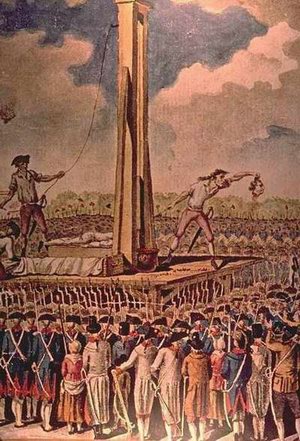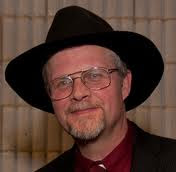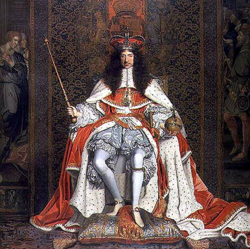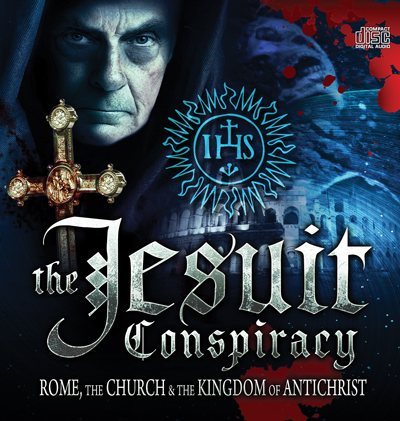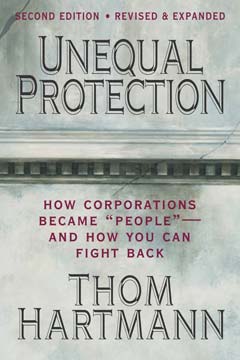 In previous articles I have spoken to the clear Jesuit roots of Socialism but now I want to flesh out the Jesuit influence behind the French Revolution which was responsible for the pluralization of my ancestral lands of the British Isles and the American Colonies through Thomas Jefferson [See also here].
In previous articles I have spoken to the clear Jesuit roots of Socialism but now I want to flesh out the Jesuit influence behind the French Revolution which was responsible for the pluralization of my ancestral lands of the British Isles and the American Colonies through Thomas Jefferson [See also here].
I have already traced the intellectual genealogy of the Order beginning with the Ratio Studiorum and then their master students Descartes and Voltaire. But that is just the academic aspect of this plot. What we need to look at next is the political force behind the Revolutions of the late 18th and mid 19th centuries in France which accomplished little else than full scale assault on the Catholic enemies of the Jesuits and the traditional enemies of the Roman Hierarchy: The Eastern Orthodox Christians and the Protestant Christians.
On July 21, 1773 Pope Clement XIV’s brief Dominus ac Redemptor Noster suppressed the Society of Jesus (Jesuits). There have been many that have said he was assassinated with poison for what he did. What is not disputed is that he died quickly of a sudden and severe sickness. To give the reader an example of Jesuit intrigue for which they were suppressed, Charles III was the King of Spain and the Spanish Indies from 1759 to 1788. [He was a Romanist- DS]. Spanish statesman Campomanes, tried to show Charles that the true leaders of  a domestic revolt against Esquilache (Charles’ Minister Marquis of Esquilache) were the Jesuits. This led to their expulsion as the King became more aware of the Church’s increasingly unnecessary power. In general, by the mid-18th century, the Jesuits had acquired a reputation for stealthy political maneuvering and economic exploitation. They were considered greedy and prone to meddle in state affairs through their close connections with powerful members of the royal court to further the interests of their society and of course the Papacy.
a domestic revolt against Esquilache (Charles’ Minister Marquis of Esquilache) were the Jesuits. This led to their expulsion as the King became more aware of the Church’s increasingly unnecessary power. In general, by the mid-18th century, the Jesuits had acquired a reputation for stealthy political maneuvering and economic exploitation. They were considered greedy and prone to meddle in state affairs through their close connections with powerful members of the royal court to further the interests of their society and of course the Papacy.
Here in 3 brief points we see the Secularist movement as the sword of the Jesuits:
1. Thomas Jefferson’s Pluralism was an all out attack on the Protestant Nations that had protected themselves from the Roman Catholic Church with anti-catholic legislation. The colony of Virginia under John Rolfe did not allow Catholic clergy or any kind of Catholic proselytizing. In the year 1700 the New York colony removed all Catholic spiritual persons having any kind of ordination that could be traced to the Roman Papacy. Yet with Jefferson’s pluralism all these protections collapsed. John Adams (1735-1826; 2nd President of the United States) complained about this in his letter to Thomas Jefferson, November 4, 1816,
“Shall we not have regular swarms of them here, in as many disguises as only a king of the gypsies can assume, dressed as painters, publishers, writers and schoolmasters? If ever there was a body of men who merited eternal damnation on earth and in hell it is this Society of Loyola’s…we are compelled by our system . . . to offer them asylum.”
 As an interesting point of history, Thomas Jefferson’s purchase of Louisiana provided refuge for the Jesuits in Louisiana. With this purchase the Jesuits would not have to leave. Was Jefferson in league with the Jesuits? Louis XV King of France suppressed them in their lands in Louisiana butJeffersongot them off the hook. EJP says,
As an interesting point of history, Thomas Jefferson’s purchase of Louisiana provided refuge for the Jesuits in Louisiana. With this purchase the Jesuits would not have to leave. Was Jefferson in league with the Jesuits? Louis XV King of France suppressed them in their lands in Louisiana butJeffersongot them off the hook. EJP says,
“With the Jesuits expelled from all of North America(which resulted in Masonic—Grand Orient—Thomas Jefferson’s Louisiana Purchase from Masonic— Grand Orient Napoleon Bonaparte I thereby nullifying the Company’s French expulsion, further evidencing the Order’s control of the Continental—Grand Orient— Illuminati Lodges)”. Vatican Assassins (2011) pg. 369.
Again EJP in his EJP Replies to Brother James on Rome’s Plot to Make George Washington a Jesuit points out,
“Remember, it was Jefferson (called an “Illuminatus” by the godly Jedediah Morse, father of Samuel Morse who invented Morse Code and wrote against the Jesuits in his Foreign Conspiracy) who, in 1803, purchased the land from Jesuit-ruled Napoleon we know today as “the Louisiana Purchase.” This enabled the Jesuits to legally remain in the area (especially Missouri) since France had expelled the Jesuits from all her overseas holdings—which included the French-controlled land of the Louisiana Purchase. Yet, what the devil’s men met for evil, God worked for good (Genesis 50:20), the lands of the LP also becoming—in the majority—White Protestant and Baptist dominions with many Native American Indians coming to Christ via the gospel.
It was also Jefferson, the president at the time, who did not object to Pope Pius XII’s legal recognition of the Jesuit Order in theUnited Statesin 1805! Jefferson should have never allowed this, but in turn, expelled the Order once restored here in America. But since Jefferson was a defender of Jesuit Illuminatus Adam Weishaupt (who died a Roman Catholic!), this is not surprising.”
Why then does EJP supportJefferson’s First Amendment pluralism? Here we see the clear use of the Secularist movement as the hand-maid of the Jesuits.
2. The French Revolution was pay-back against the nations that suppressed the Jesuits.
The New Advent Catholic Encyclopedia in its article “The Suppression of the Jesuits (1750-1773)” says,
“The Suppression is the most difficult part of the history of the Society. Having enjoyed very high favor among Catholic peoples, kings, prelates, and popes for two centuries and a half centuries, it suddenly becomes an object of frenzied hostility, is overwhelmed with obloquy, and overthrown with dramatic rapidity. Every work of the Jesuits — their vast missions, their noble colleges, their churches — all is taken from them or destroyed. They are banished, and their order suppressed, with harsh and denunciatory words even from the pope. What makes the contrast more striking is that their protectors for the moment are former enemies — the Russians and Frederick of Prussia. Like many intricate problems, its solution is best found by beginning with what is easy to understand. We look forward a generation, and we see that every one of the thrones, the pope’s not excluded, which had been active in the Suppression is overwhelmed. France, Spain, Portugal, and Italy become, and indeed still are, a prey to the extravagance of the Revolutionary movement. The Suppression of the Society was due to the same causes which in further development brought about the French Revolution.”
The Encyclopedia admits that the nations that suppressed the Jesuits were repaid with vengeance but refuses to face the Jesuit influence behind it. What is clear is that Weishaupt’s Illuminati, and yes Weishaupt was a trained Jesuit coadjutant, is the driving force behind the Jacobins and the Jacobins are the people that performed the Reign of Terror. The Illuminati was recognized as a movement that sought to overthrow all power and authority which laid the foundation for the Marxism of the next century and remains intact to a great degree today. All the ideas that I heard coming out of my atheist Father’s mouth are sourced in this movement. All I heard from my Father growing up was his hatred for authority, both religious and civil; his hatred for the rights of employers over employees; his hatred for responsibility and self-reliance; his hatred for his Father; his hatred for wealthy white men. These are all Jesuit ideas; they are communist ideas; they are atheist ideas. Thus Weishaupt is the Father of modern Communism (Don’t forget the Jesuit perfection of Communism in their Reductions). He used his Jacobins to conduct the French Revolution incited by his Jesuit trained Voltaire [Jesuits Collège Louis-le-Grand (1704–1711)] and Diderot [Jesuit College in Langres].
Emanuel M. Josephson in his The “Federal” Reserve Conspiracy and Rockefellers, (New York: Chedney Press, 1968) pp. 4, 5 [Quoted in Vatican Assassins (2001), pg. 245] says,
“Weishaupt and his fellow Jesuits cut off the income to the Vatican by launching and leading the French Revolution; by directing Napoleon’s conquest of Catholic Europe; [and] . . . by eventually having Napoleon throw Pope Pius VII in jail at Avignon until he agreed, as the price for his release, to reestablish the Jesuit Order. This Jesuit war on the Vatican was terminated by the Congress of Vienna and by the secret, 1822, Treaty of Verona.”
Napoleon Bonaparte was a supporter of the Jacobins and his army was mostly populated by people of the atheistic and deconstructionist sentiment that still influence my country today. EJP says in Vatican Assassins (2001), pg. 247-249
“Did not the Jesuits benefit when Napoleon Bonaparte drove the Bourbon King of Spain, Charles IV, into exile? Did not the Jesuits benefit when Napoleon  exiled the Braganza monarchs, Queen Maria Francisca I (1777-1816) and her son John (later King John VI, 1816-1826) of Portugalto Brazil? Did not the Jesuits benefit when Napoleon drove the Knights of Malta from the island of Malta, confiscating all their treasures and weapons? (Remember, the Knights had previously expelled the Jesuits from Malta.) Did not the Jesuits benefit when Napoleon conquered the Protestant Dutch Republic, founded by one of our heroes, William I of Orange? Did not the Jesuits benefit when Napoleon conquered Italy, and vanquished Austria as both nations had expelled the Jesuit Order? Did not the Jesuits benefit when Napoleon conquered Protestant Switzerland? Would not the Jesuits have benefited if the French General Hocke had succeeded in breaking away Catholic Ireland from Protestant England (later accomplished after World War I)? Would not the Jesuits have benefited had Napoleon conquered Jerusalem, he having called for the establishment of “Jerusalem for the Jews” on April 14, 1799? Did not the Jesuits benefit when Napoleon broke up the Pope’s Holy Roman Empire? Why did nearly every strategy of Napoleon result in benefiting the Jesuit Order? The answer is in the person of Abbe Sieyes. According to Ridpath’s Universal History this priest was a prime mover of the French Revolution, the Directory, and was the Second Consul on Napoleon’s Consulate (Pierre-Roger Ducos being the third), calling for the end of the nobility and clergy — the enemies of the Society of Jesus! It is also most fascinating to see that Sieyes, the man whose coup d’etat brought Napoleon to power, was Jesuit-trained. We read:
exiled the Braganza monarchs, Queen Maria Francisca I (1777-1816) and her son John (later King John VI, 1816-1826) of Portugalto Brazil? Did not the Jesuits benefit when Napoleon drove the Knights of Malta from the island of Malta, confiscating all their treasures and weapons? (Remember, the Knights had previously expelled the Jesuits from Malta.) Did not the Jesuits benefit when Napoleon conquered the Protestant Dutch Republic, founded by one of our heroes, William I of Orange? Did not the Jesuits benefit when Napoleon conquered Italy, and vanquished Austria as both nations had expelled the Jesuit Order? Did not the Jesuits benefit when Napoleon conquered Protestant Switzerland? Would not the Jesuits have benefited if the French General Hocke had succeeded in breaking away Catholic Ireland from Protestant England (later accomplished after World War I)? Would not the Jesuits have benefited had Napoleon conquered Jerusalem, he having called for the establishment of “Jerusalem for the Jews” on April 14, 1799? Did not the Jesuits benefit when Napoleon broke up the Pope’s Holy Roman Empire? Why did nearly every strategy of Napoleon result in benefiting the Jesuit Order? The answer is in the person of Abbe Sieyes. According to Ridpath’s Universal History this priest was a prime mover of the French Revolution, the Directory, and was the Second Consul on Napoleon’s Consulate (Pierre-Roger Ducos being the third), calling for the end of the nobility and clergy — the enemies of the Society of Jesus! It is also most fascinating to see that Sieyes, the man whose coup d’etat brought Napoleon to power, was Jesuit-trained. We read:
“Sieyes, Emmanuel Joseph (1748-1836), one of the chief political thinkers and writers of the period of the French Revolution and the first empire . . . He was destined for the Church, was educated by the Jesuits, became a licentiate of the Canon law [including the oppressive and evil Council of Trent] . . . ” [The Encyclopedia Britannica, New Werner Edition, New American Supplement, Ninth Edition, Day Otis Kellogg, (New York: The Werner Co., 1903) Vol. XXII, p. 45- Footnote in Vatican Assassins-DS]
Thus Napoleon, the Roman Catholic Freemason called “Robespierre on horseback” by Madame de Stael, whose right-hand man was both a Jesuit-trained and controlled advisor, Abbe Sieyes, was brought to power from the Jesuit stronghold of Corsica.”
…Following Napoleon’s Russian campaign – his successful betrayal and murder of hundreds of thousands of freedom-loving republican soldiers [Napoleon abandoned them. He had to kill this army that would never accept an Absolute monarch as described in Ridpath’s Universal History, Vol. XIV, p. 746, “As soon as the fate of his great campaign was decided, Napolean, leaving Murat in command of the army, took a sledge, sped with all hast across the snow-covered wastes of Poland, and came unannounced to Paris.”-DS] – the Jesuits sought to restore the old order of things. The Jesuit Order was revived in 1814 and the Congress of Vienna began as well. Meanwhile, Napoleon was rewarded for a job well done with an annual pension of two million francs while on the island of Elba. But the Monarchs at the Congress of Vienna squabbled; so, the Jesuits brought Napoleon back to France, known as “the hundred days.” This frightened the Monarchs into coming to terms with each other. With the Congress of Vienna having fulfilled the purpose of the Jesuit Order, the soldiers of France could now be finally defeated. Napoleon gathered an army of French patriots and deliberately sacrificed it at Waterloo by attacking the wrong point of the British line. We read concerning General “Stonewall” Jackson’s observations:
“In the summer of 1856, he employed his long vacation in a European tour, in which he visited England,France, and Switzerland. During this journey he carefully examined the field of Waterloo, and traced out upon it the positions of the contending armies. When he returned home, he said although Napoleon was the greatest of commanders, he had committed an error in selecting the Chateau of Hougomont as the vital point of attack upon the British line; it should have been the village of Mont St. Jean. This opinion has subsequently been corroborated by high authority in the military art.” [Life and Campaigns of Lt. General T. J. (Stonewall)Jackson, R. L. Dabney, (Harrisonburg, Virginia: Sprinkle Publications, 1983; originally published in 1865) pp. 82, 83.-Foonote-DS]…
Dear truth-seeker, do you think the master of Austerlitz would make such a basic blunder – by accident – blasting all hope for French liberty? How ridiculous! Napoleon was captured by the English and banished to an island in the South Atlantic Ocean called St. Helena. There, his Memoirs were written which accurately described his masters, the Sons of Loyola, having betrayed him into the hands of his captors.”
History of the Captivity of Napoleon at St. Helena (1846) by Montholon Volume 2, pg. 388 says,
“But there is a religious society, the tendency of which is highly dangerous, and which should never have been admitted into the territories of the empire- — viz., the Society of Jesus. Its doctrines are subversive of all monarchical principles. The General of the Jesuits desires to be sovereign master, the sovereign of sovereigns. Everywhere that the Jesuits are tolerated, they strive for power, at any price. Their society is by nature fond of ruling, and nourishes, therefore, an irreconcilable hatred of all existing power. Any action, any crime, however atrocious it may be, is meritorious, if committed- for the interest of the society, or by the orders of its General. The Jesuits are all men of talent and learning. They are the best existing missionaries, and would be, were it not for their ambition of ruling, the best instructing body, for the propagation of civilisation and the development of its progress. They may be of service in Russia for some years longer, because the first need of that empire is civilisation.”
3. The Jesuit and Roman Hierarchy were behind both the French and Russian Secularism. The French Revolution was the foundation for Marxism. Marx was highly influenced by Pierre Proudhon; and remember, in 1917 the Roman Catholic Lady of Fatima hoax began in May and lasted for 6 consecutive months. Ending October 13, it called for the conversion of Russia (Traditionally Eastern Orthodox/Russian Orthodox which broke from Rome in 1054 A.D. denying Papal Supremacy). The Bolshevik revolution began October 25, 1917: 12 DAYS LATER!
EJP says on page 397 of Vatican Assassins,
“The parallels between the Jesuits’ French and Russian Revolutions are striking. They are as follows:
1. Both revolutions were based on communist writings of Freemasons —Voltaire and Marx. Did not the Jesuits perfect communism on their reductions in Paraguay?
2. Both revolutions plundered the state churches. Were not the Jesuits the enemies of the Catholic Church in France and the Orthodox Church in Russia when the revolutions broke out?
3. Both revolutions ended the monarchies. Were not the Jesuits enemies of both the Bourbon and the Romanoff dynasties? Had not both monarchies expelled the Jesuits from their countries?
4. Both revolutions produced Jesuit Republics— republics in form, but absolute monarchies in power. Are not the Jesuits absolutists?
5. Both revolutions declared atheism as the religion of the state. Evidenced by their deeds, are not the Jesuits truly atheists?
6. Both revolutions carried out a reign of terror by an inquisitional secret police. Are not the Jesuits the greatest of Inquisitors?
7. Both revolutions resulted in military dictators who punished the enemies of the Jesuits. Did not the Jesuits benefit even though Napoleon and Stalin, in deceiving the nations, openly banned the Order from France and Russia?”
Is it just a coincidence that Secularism ushered in the bloodiest century in the history of the world focusing on all the most traditional enemies of the Jesuits and the Roman Papacy? Is it just a coincidence that every atheist I have ever known has been a white person? I have never personally known a person of color to be an atheist…hmmmmmmm. If you notice in the video I cited, the atheistic detractors to Doug Wilson were all white people. You see the white race with its Protestant Christianity is the fundamental concern of the Jesuits. That is why we are brainwashed to hate White Christians in the Secular West. We are the people who have the intellectual capabilities to expose their evil devices. Our intellects must then be turned away from the Bible and the Protestant Reformation to all of the insanities, moral depravities and gaping holes of Secularism; constantly chasing the white rabbit of science that has always and will always evade the grasp of man [See here and here and here]; therefore walking right into the trap of the Jesuits and the inevitable re-assimilation of our once Protestant Heaven on Earth into the re-made Holy Roman Empire. Yes, my atheistic, secularist friend, the Jesuit and Papal  controlled CFR will not introduce you to the Pre-Socractic Era of Greek Philosophy or the history of Europe and the Protestant Reformation in their mind control concentration camps known as State Universities. You are the replacement for the Protestant Reformation. As long as you are an atheist you are not a Protestant and therefore you pose no threat to the Jesuit agenda. To quote those haunting words of Morpheus, “What is the Matrix [Secularism-DS]? Control. The Matrix [Secularism-DS] is a computer-generated dream world [Exactly how Morris Kline describes the attempts to apply mathematics to the physical world-DS] built to keep us under control in order to change a human being into this. [holds up a Duracell battery] You may reply, “No, I don’t believe it. It’s not possible.” I didn’t say it would be easy, Neo. I just said it would be the truth.
controlled CFR will not introduce you to the Pre-Socractic Era of Greek Philosophy or the history of Europe and the Protestant Reformation in their mind control concentration camps known as State Universities. You are the replacement for the Protestant Reformation. As long as you are an atheist you are not a Protestant and therefore you pose no threat to the Jesuit agenda. To quote those haunting words of Morpheus, “What is the Matrix [Secularism-DS]? Control. The Matrix [Secularism-DS] is a computer-generated dream world [Exactly how Morris Kline describes the attempts to apply mathematics to the physical world-DS] built to keep us under control in order to change a human being into this. [holds up a Duracell battery] You may reply, “No, I don’t believe it. It’s not possible.” I didn’t say it would be easy, Neo. I just said it would be the truth.









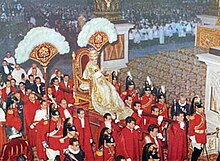
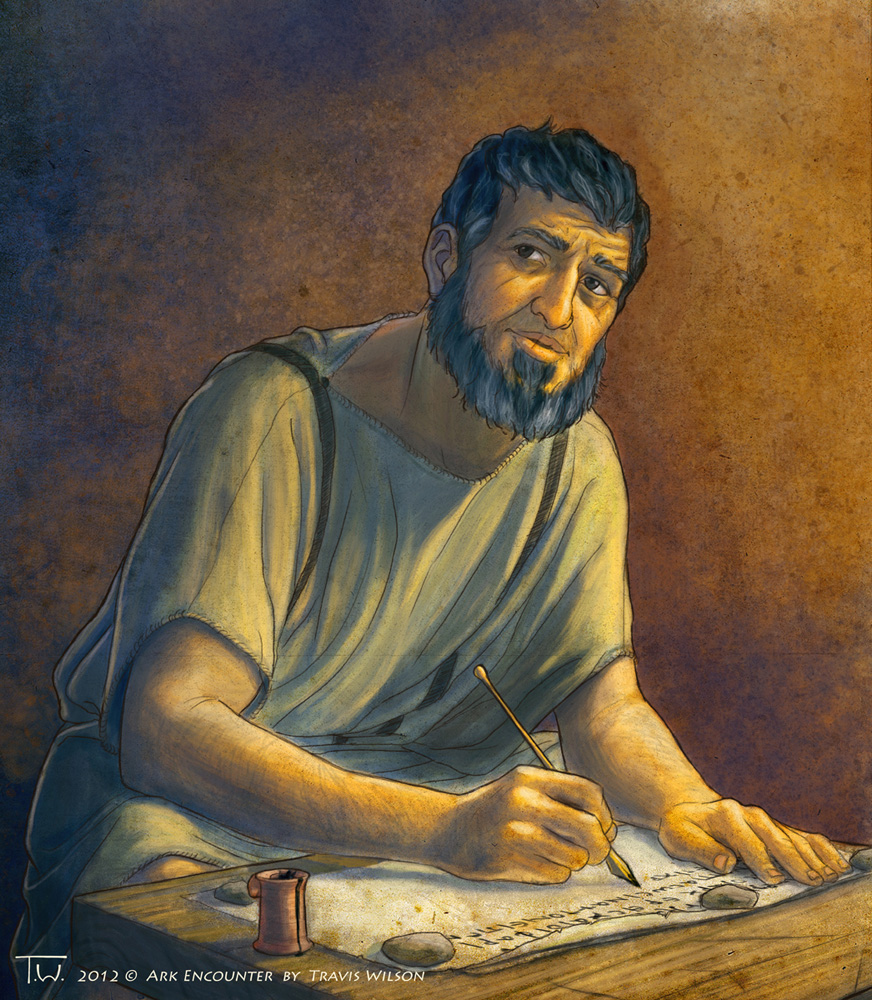


-1-.jpg)

